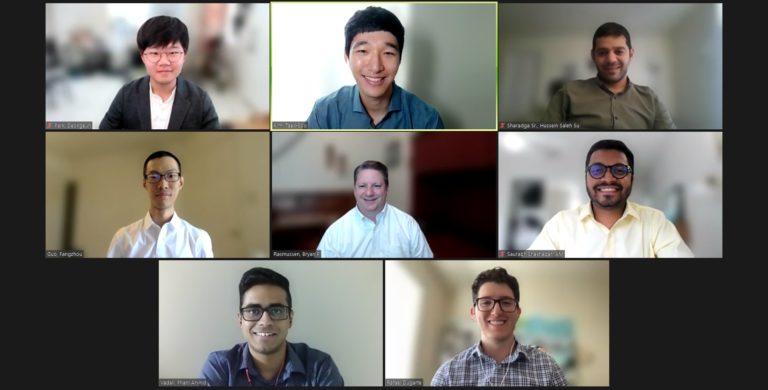Welcome to the Energy Efficiency Control Optimization Laboratory!
Our research is focused on using advanced control strategies to achieve higher efficiency, reduced environmental impact, and increased performance for conventional and alternative energy systems. Such energy systems include vapor compression cycles, solar boilers, compressed air storage systems, solar PV batteries, HVAC systems, and electrical systems. We take a holistic approach to research by incorporating modeling, simulation, design, and experimental evaluation into each project.
Control of thermofluid systems lies at the intersection of two traditionally disparate fields of mechanical engineering. Many types of energy systems such as vapor compression cycles, solar boilers, use fluid phase changes and/or chemical reactions to transform or transport energy. These systems often operate almost exclusively in the transient, despite being designed for steady-state operating conditions. Although precise transient control of energy systems is critical to achieving high efficiencies, the traditional static viewpoint of more standard energy systems also results in a missed opportunity for efficiency improvement. This is particularly true for vapor compression cycles, which find wide use in refrigeration, air conditioning, and heat pump applications. Moreover, with legislation phasing out typical HFC refrigerants, more environmentally friendly refrigerants (e.g. CO2) are being vigorously pursued. The technological focus of current research projects focuses primarily on vapor compression systems and related energy systems. This necessarily includes research in the areas of dynamic modeling (model development, reduction, and validation) and nonlinear control design (gain-scheduling, Model Predictive Control, sets of stabilizing controllers). We ensure the viability of our research by developing software tools for industrial partners (e.g. HVAC&R Dynamix) and involving direct experimentation for virtually every project.


